- Home
- Michael Dobbs
The Final Cut fu-3 Page 2
The Final Cut fu-3 Read online
Page 2
The children had stumbled into a remarkably effective natural redoubt. Some twenty feet across, the scraping in the mountainside was backed by a picket line of boulders that effectively denied a clear line of either sight or fire from above, while the ground ran gently away on the valley side, making it difficult to attack except by means of a frontal and uphill assault, a tactic that had already been shown to be mortally flawed. Clumps of bushes hugged the perimeter providing still further cover, and a young pine had somehow managed to find a footing in the bare rocky floor of the bowl.
'Suggestions, Corporal Ross? We need a rapid solution.' Urquhart slapped the officer's Browning at his belt, but was not so naive that he failed to recognize the other man's value.
The corporal sucked a little finger as though trying to remove a splinter. 'We could surrender straight away, that'd be quickest. Or blow the wee bastards into eternity, if that's what you want, Lieutenant. One grenade should do the job.'
'We need them alive. Find out where they were headed with those arms.'
'They're weans. Be famished by breakfast time, come oot wavin' a white flag an' a fork.'
'Now, we need them now, Corporal. By breakfast time it will be all too late.' They both understood the urgency. EOKA supply drops were made at specified times; any more than six hours overdue and the hide was evacuated, the Greek eagles flown, putting the British back where they'd started. They needed short cuts; it made early capture essential and interrogation techniques sometimes short on patience. 'In life, Ross, timing is everything.'
'In death, an' all.' The Clydesider indicated MacPherson.
'What the hell's your problem, Corporal?' Urquhart turned on him savagely.
'To be honest, Mr Urquhart, I dinnae hae much stomach for the killing of weans.' But there was more, unspoken, in his eyes. He had a son not much younger than the boys hiding in the rocks. 'I'll do it, if I huv tae. If ye order me. But I'll tak nae joy fae it. You're welcome tae the medal.'
'I'll remember to include your little homily when I write to MacPherson's parents. I'm sure they'll be touched.'
But Urquhart had no more time for verbal hostilities. The great tangerine chariot of a sun was chasing through the sky more rapidly with every passing minute, splashing a glow of misleading warmth across the scene. Delay would bring darkness and probable failure for Urquhart and he was not a man for inaction. He took a Sten from the shoulder of one of his men and, planting his feet firmly in the forest floor, unleashed a fusillade of bullets against the unyielding amphitheatre of boulders at the back of the bowl. A second magazine followed, dust and sparks spitting from the orange-blonde rocks; the noise was awesome.
'You boys,' he shouted. 'You cannot escape. Come out, I promise no one will get hurt.' There was silence. He directed two other members of the section to empty their magazines against the rocks, and suddenly there was a youthful cry of pain. A spent bullet had ricocheted and caught one of the lads a glancing blow. No damage, but surprise and distress. 'Can you speak English? Come out now, before anyone gets hurt.' Silence.
'Damn them! Do they want to die?' Urquhart beat his palms with frustration. But Ross was on his knees, fiddling with a Mills grenade.
'What on earth…?' Urquhart demanded, but could not avoid taking an involuntary pace backwards.
The corporal had bent the pin so that it could not fall out, then with meticulous care and using the stock of a Sten gun for torque he proceeded to unscrew the top of the grenade, lifting it away from the dull metal body complete with its detonator. The powdered explosive poured out easily into a little pile on the rocks beside his boot. He now reassembled the harmless bomb, and handed it to Urquhart.
If this doesnae scare those rabbits out of their hole, nothing will.'
Urquhart nodded in understanding. 'This is your last chance,' he shouted to the rocks. 'Come out or we'll use grenades.' 'Eleftheria 'I Thanatos!' came the reply.
'The EOKA battle cry. Freedom or Death' Ross explained.
'They're only children!' Urquhart snapped in exasperation. 'Brave wee buggers.'
Angrily Urquhart wrenched the pin from the grenade, letting the noise of the spring-loaded firing pin drift out across the rocks, then threw the grenade with great accuracy into the bowl.
Less than two seconds later it came hurtling out again. And who could take chances? The reaction was automatic, the instinct for self-preservation overriding. Urquhart threw himself to the ground, burying his head amongst the pine needles and cones, trying to count the seconds. There came a muffled pop from the detonator, but nothing more. No blast, no ripping metal or torn flesh. Eventually he looked up to find towering above him, framed in menacing silhouette against the evening sky, the figure of Ross.
'Let me help you tae yer feet. Sir.' Derision filled every syllable.
Urquhart waved away the proffered hand and scrambled up, meticulously thrashing the dust from his khaki uniform to hide his humiliation. He knew that every Jock in the section was mocking and by morning the tale would have filled all four corners of the officers' mess. He had been stripped of respect, of his authority. Ross had exacted his revenge.
A rage grew within Urquhart. Not a blind rage that blurs judgement but a wrath that burnt and whose light brought clarity of understanding. He had come to a crossroads from which there was no turning back, not after this humiliation before the eyes of his men. His only choice was which path he might take. One path would be trodden with a stooped back, weighed down by fear of failure, with his sights set no higher than any other's and finding comfort amongst the mediocrity of the multitude. Dust in the desert. The other path would let him stand tall, allow him to grow; it was a lonely track and would make him a target of envy and, if he fell, would bring him tumbling from far greater heights. Yet while it lasted it would allow him to see quite beyond the ambitions of other men. Francis Urquhart had no doubt which he would choose.
'Fetch two jerry cans of petrol from the Champ,' he instructed. A soldier went scurrying.
'What are you intending to do, Mr Urquhart?' Ross asked, the triumph evaporated from his voice.
'We need information or examples. Those terrorists can provide either.'
Ross noted the change in the boys' status. 'Examples of what?'
Urquhart met the other man's gaze; he saw a weakness in it, fear, but not for himself. Urquhart had regained the advantage. Then the jerry cans arrived.
'Corporal, I want you to get around behind them and use the cover of those rocks to empty this petrol into their hide.' 'And then what?' 'That will depend upon them.' 'They're nothin' but bairns…'
'Tell that to MacPherson. This is a war, not a tea party, and those two have decided to join it. So they can come out in one piece or with their tail feathers scorched. Their choice.' 'You wouldna burn them out.'
'I'll give them far more chance than EOKA would give its own victims.' They knew the bloody truth of that, had both seen the blackened and mutilated carcasses, hands stretched out like claws in charred agony, fathers and sons often dragged out of church or from the desperate clutches of their families, burnt, butchered. As examples. 'And the message will get round, serve as a warning to others. Make it easier for us next time.' 'But, Sir…'
Urquhart cut him short, handed him a jerry can. 'We'll give you covering fire.'
Ross took one step back, shaking his head. 'Ah'll no' burn them oot. I dinna fight that way. Against bairns.'
There was an audible stirring of support from the section's other members. Ross was able, experienced, some of the men owed their lives to that.
'Corporal, I am giving you a direct order. To disobey is a court-martial offence.' 'I hae lads of my own.'
'And if you don't follow my orders I'll make sure you're locked up for so long they will be grown men by the time you next set eyes on them.'
Agony had carved deep furrows across the corporal's expression, but still he refused the jerry can. 'Rather that, than never being able to look my boys in the eye again.'
&nbs
p; 'This is not me ordering you, Ross, it's your country.'
'You do it then. If you hae the stomach fer it. Or will you lie down on yer belly like a frightened woman once again?'
The challenge had been struck. Urquhart looked around the others, five men in all, and saw that they had each sided with Ross. He knew he couldn't court-martial the entire section, it would reduce him to a laughing stock. Ross was right; if it were to be done, he would have to do it himself.
'Give me covering fire when I'm round behind them.' He eyed the corporal. 'No, not you Ross. You're under arrest.'
And he had gone. Ducking low, pacing rapidly through the trees, a can in each hand, until he was well behind the hide. He signalled and one then another of the troops opened up, sending barrages of sound across the scene. Quickly and as quietly as he was able, Urquhart edged up to one of the taller boulders, a great drum almost the height of a man which stood directly behind where the boys were hiding. The cap was off one can, he stretched and, without exposing himself to reprisal by either the boys or his own troops, he tipped the can across the top of the boulder so that all four and a half gallons of stinking fuel began to spill down the rock face and into the bowl. The next four and a half gallons followed immediately, they were still vomiting from the neck of the can as he beat his retreat.
'You have thirty seconds to come out before we fire the petrol!'
Within their rocky hide, George and Eurypides' faces spoke of their dread. As fast as they tried to crawl away from the swamping fuel, they were forced to duck back beneath the blanket of ricocheting bullets. What was worse, the fuel had begun to make the elevations of the rocky bowl slippery, the nails on their boots finding little purchase on the smooth stone. The inevitable result in such a small place was that their clothes became soaked in foul-smelling petrol. It made them retch. 'Fifteen seconds!'
'They won't do it, little brother,' George tried to convince himself. 'But if they do, you jump first.' 'We mustn't tell. Whatever happens, we mustn't tell,' Eurypides choked. 'Five!'
It was longer than five. Considerably longer. Urquhart's bluff had been called and he was not ready for it, hoping that the next action could be avoided. Yet he had set out on his path, there was no turning back. He had retained a rag half-soaked in petrol; this he tied around a small rock so that the fuel-impregnated ends hung free. He brought out his cigarette lighter, snapped it into life, and touched the rag.
Events moved rapidly from that point. The rag burst into flame, almost engulfing Urquhart's hand, scorching the hair on his arm. He was forced to throw it immediately; it performed a high, smoky arc in the sky above the rocks before plunging down. Ross shouted. There was a crack. Hot vapour danced above the hide like a chimney from hell. Then a scream, a terrified, violent, boyish shriek of protest. Two heads appeared above the bowl, then the tops of two young bodies as they scrambled up the side. But as the soldiers watched the smaller one seemed to lose his footing, to slip, stumble, he disappeared. The older boy froze, looked back down into the ferment, took a last look at the forest beyond, cried his brother's name and sprang back in.
It was impossible to tell exactly what was happening in the bowl, but there were two sets of screams now, joined in a chorus of prolonged suffering and death.
'You miserable bastard,' Ross sobbed. 'I'll no' watch them burn.' And already a grenade had left his hand and was sailing towards the inferno.
The explosion blew out the life of the fire. And stopped the screaming.
In the silence that followed, Urquhart was conscious that his hands were trembling. For the first time he had killed – in the national interest, with all the authority of the common weal, but he knew that many would not accept that as justification. Nothing was to be gained from this. Ross stood before him, struggling to compose himself, his fists clenched into great balls which might at any moment strike out. The other men were crowded round, sullen, sickened.
'Corporal Ross, this was not what I had wanted,' he started slowly, 'but they brought it on themselves. War requires its victims, better terrorists than more like MacPherson. Nor do I wish to see you ruined and locked away as a result of a court martial. You have a long record of military service of which you can be proud.' The words were coming more easily now, his hands had stopped trembling and the men were listening. 'I think it would be in everyone's interests that this incident be forgotten, we don't want to give EOKA any more martyrs. And I don't want your indiscipline to provide unnecessary work for the Military Provosts.' He cleared his throat of the remorse that seemed lodged there like bile. 'My Situation Report will reflect the fact that we encountered two unidentified and heavily armed terrorists who were killed in a military engagement following the death of Private MacPherson. We shall bury the bodies secretly in the forest to prevent any unnecessary outbreak of hostility or desire for retaliation amongst the local villages. Nothing more. Unless, that is, you want a fuller report to be lodged, Corporal Ross?'
Ross, the large, lumbering, caring soldier-father, recognized that such a full report might damage Urquhart but would in all certainty ruin him. That's the way it was in the Army, pain was passed down the ranks. Anyway, for Urquhart the Army was nothing more than a couple of years of National Service, for Ross it was his whole life. He wanted to scream, to protest that this had been nothing less than savagery, but he would be the first to be condemned. That knowledge weighed more heavily than his hate. His shoulders sagged and his head fell in capitulation.
While the men began to search for a burial site in the thin forest soil, Urquhart went to inspect the scene within the rocky bowl. He was grateful that there was surprisingly little obvious damage to the dark skin of their faces, but the sweet-sour stench of scorching and petrol fumes made him desperately want to vomit. He fought back the temptation, and won. There was nothing of military value in their pockets, but around their necks on two thin chains hung crucifixes engraved with their names. He tore them off; no one should ever discover their identities.
It was dusk when they drove back down the mountain with MacPherson's body strapped in the back. Urquhart turned for one last look at the battle scene, his place of initiation; suddenly in the gathering darkness he saw a light. An ember, a fragment of fire, had somehow survived and been fanned by the evening breeze, causing it to burst back into life. The young pine which stood in the middle of the bowl was ablaze, a beacon marking the site that could be seen for miles around.
For lingering minutes as he descended he continued to watch the burning tree. He never spoke of the incident on the mountain again but thereafter, at times of great personal crisis and decision in his life, whenever he closed his eyes and occasionally when he was asleep, the brilliant image and the memory of that day would return, part-nightmare, part-inspiration. The making of Francis Urquhart.
ONE
The door of the stage manager's box opened a fraction for Harry Grime to peer into the auditorium. 'Hasn't arrived, then' he growled.
Harry, a leading dresser at the Royal Shakespeare Company, didn't like Francis Urquhart. Fact was, he loathed the man. Harry was blunt, Yorkshire, a raging queen going to seed who divided the universe into thems that were for him and thems that weren't. And Urquhart, in Harry's uncomplicated and unhumble opinion, weren't.
'Be buggered if that bastard'll get back,' Harry had vouchsafed to the entire company last election night. Yet Urquhart had, and Harry was.
Three years on, Harry had changed his hair colour from vivid chestnut to a premature orange and shed his wardrobe of tight leather in preference for something that let him breathe and allowed his stomach to fall more naturally, but he had moved none of his political opinions. Now he awaited the arrival of the Prime Minister with the sensibilities of a Russian digging in before Stalingrad. Urquhart was coming, already he felt violated.
'Sod off, Harry, get out from under my feet,' the stage manager snapped from his position alongside the cobweb of wires that connected the monitors and microphones with which he was supposed t
o control the production. 'Go check that everyone's got the right size codpiece or something.' Harry bristled, about to retaliate, then thought better of it. The Half had been called, all hands were now at their posts backstage and last-minute warfare over missing props and loose buttons was about to be waged. No one needed unnecessary aggravation, not tonight. He slunk away to recheck the wigs in the quick-change box at the back of the stage.
It was to be a performance of Julius Caesar and the auditorium of the Swan Theatre was already beginning to fill, although more slowly than usual. The Swan, a galleried and pine-clad playhouse that stands to the side of the RSC's main theatre in Stratford-upon-Avon, is constructed in semi-circular homage to the Elizabethan style and has an intimate and informal atmosphere, 432 seats max. Delightful for the performance but a nightmare for Prime Ministerial security. What if some casual theatre-goer who loved Shakespeare much yet reviled Francis Urquhart more, more even than did Harry Grime, took the opportunity to… To what? No one could be sure. The Stratford bard's audiences were not renowned for travelling out with assorted weaponry tucked away in pocket or purse – Ibsen fans, maybe, Chekov's too, but surely not for Shakespeare? Yet no one was willing to take responsibility, not in the presence of most of the Cabinet, a handful of lesser Ministers, assorted editors and wives and other selected powers in the realm who had been gathered together to assist with celebrations for the thirty-second wedding anniversary of Francis and Elizabeth Urquhart.
Geoffrey Booza-Pitt was the gatherer. The youngest member of Francis Urquhart's Cabinet, he was Secretary of State for Transport and a man with an uncanny eye for opportunity. And for distractions, of all forms. And what better distraction from the shortcomings of Ministerial routine than to block-book a hundred seats in honour of the Master's anniversary and invite the most powerful men in the land to pay public homage? Two thousand pounds' worth of tickets returned a hundred-fold of personal publicity and left favours scattered throughout Westminster, including Downing Street. That's precisely what Geoffrey had told Matasuyo, car giant to the world and corporate sponsor to the RSC, who had quietly agreed to pay for the lot. It hadn't cost him a penny. Not that Geoffrey would tell.

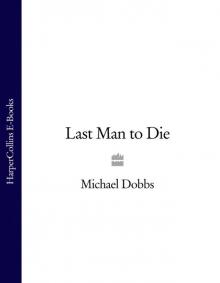 Last Man to Die
Last Man to Die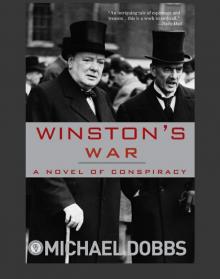 Winston's War
Winston's War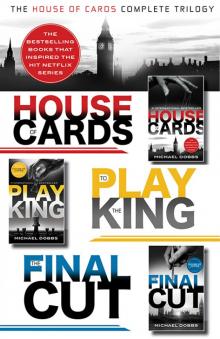 The House of Cards Complete Trilogy
The House of Cards Complete Trilogy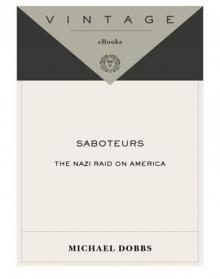 Saboteurs
Saboteurs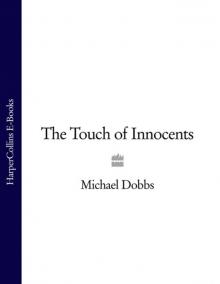 The Touch of Innocents
The Touch of Innocents WC02 - Never Surrender
WC02 - Never Surrender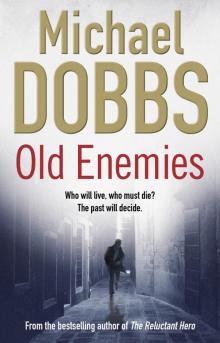 Old Enemies
Old Enemies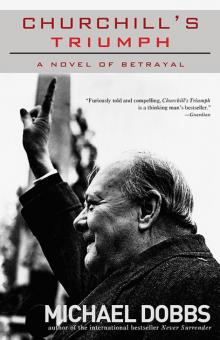 Churchill's Triumph
Churchill's Triumph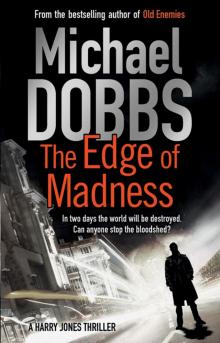 The Edge of Madness
The Edge of Madness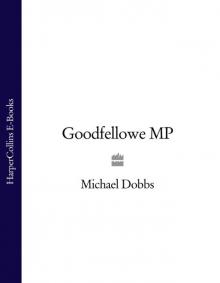 Goodfellowe MP
Goodfellowe MP The Final Cut
The Final Cut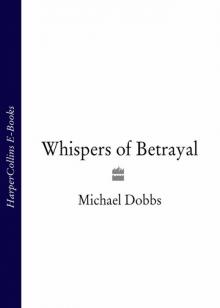 Whispers of Betrayal
Whispers of Betrayal Churchill's Hour
Churchill's Hour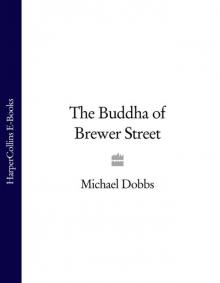 The Buddha of Brewer Street
The Buddha of Brewer Street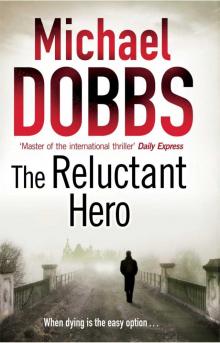 The Reluctant Hero
The Reluctant Hero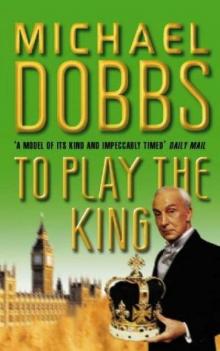 To Play the King
To Play the King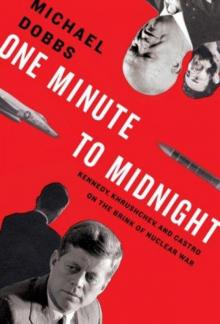 One minute to midnight
One minute to midnight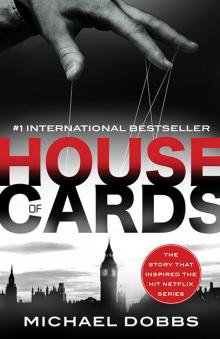 House of Cards
House of Cards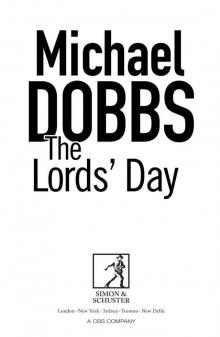 The Lords' Day (retail)
The Lords' Day (retail)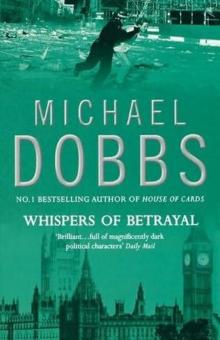 Whispers of betrayal tg-3
Whispers of betrayal tg-3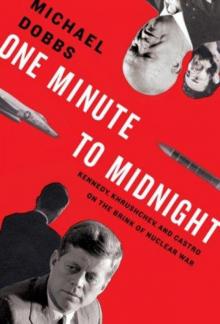 One minute to midnight: Kennedy, Khrushchev, and Castro on the brink of nuclear war
One minute to midnight: Kennedy, Khrushchev, and Castro on the brink of nuclear war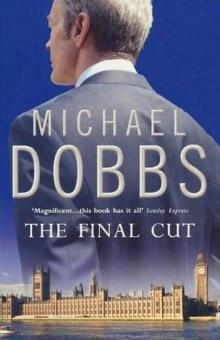 The Final Cut fu-3
The Final Cut fu-3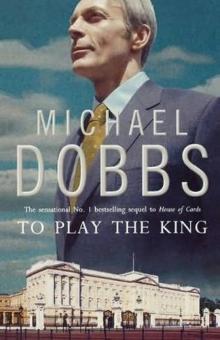 To play the king fu-2
To play the king fu-2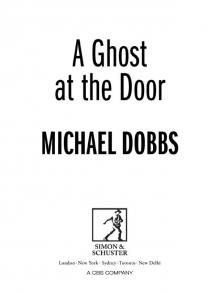 A Ghost at the Door
A Ghost at the Door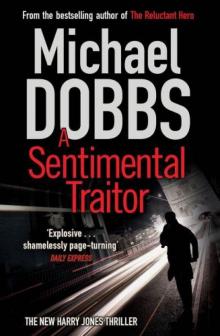 A Sentimental Traitor
A Sentimental Traitor